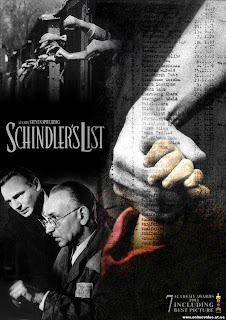Diaries of a Prisoner: Drama/ Docu-Drama: Set in WW2: A story about a Jewish girl who falls in love with a young Germany soldier. They communicate through letters about what they are doing in their day-to-day. It could also show the struggle for survival as the German boy struggles to keep her safe in the camp.
Voice: 1st person: Diary enteries and letters. 3rd person: Conversations between the other characters:
Resarch for idea: The Reader, The Boy in the striped pyjamas, Schindlers List, The Notebook and The History of WW2 before and after.
Research into World War 2: http://en.wikipedia.org/wiki/World_War_II
The Boy in the Striped Pyjamas:
SS officer Ralf and his wife Elsa move from Berlin to the countryside with their children, twelve-year-old Gretel and eight-year-old Bruno after Ralf is promoted to commandant of a Nazi concentration camp, without friends, Bruno craves companionship and adventure, and disregards his parents by sneaking into the back courtyard and emerges at an isolated, unguarded corner of the concentration camp, which he initially believes to be a farm.
There, he befriends Shmuel Jack Scanlon, a boy of the same age. Bruno returns frequently thereafter, bringing Shmuel food and playing games with him through the barbed wire fence. Shmuel gradually reveals to Bruno the truth of what is behind the fence, telling him that he and his family have been imprisoned, and forced to wear the "striped pyjamas," because they are Jews, although Bruno does not understand the significance of this at first. Bruno and Gretel's soon get a tutor, who in reality feeds a diet of antisemitism and nationalist propaganda.
In response, Gretel becomes increasingly fanatical in her support for the Third Reich, and flirting with SS Lieutenant Kurt Kotler. Bruno, however, is skeptical, as all of the Jews Bruno knows, Shmuel and the family's servant Pavel , do not resemble Lizt's teachings. He also witnesses savage, senseless acts of brutality that conflict with the propaganda ideal of military heroism, After this incident, Shmuel is sent to the commandant's home to clean the house's glasses.. When Kotler sees crumbs on Shmuel's lips, and accuses him of stealing, Shmuel tells the officer that Bruno is his friend, and Bruno gave him the cake. Frightened of Kotler, Bruno denies knowing Shmuel and claims that he was already eating the cake when he came in. Kotler informs Shmuel that they will 'have a little chat about what happens to rats who steal.' Bruno does not see Shmuel for several days, and when he eventually turns up at the fence, he has got a swollen black eye from Kotler. However, he forgives Bruno, with the two reaffirming their friendship by shaking hands through the electrified wire fence.
When Kotler absent-mindedly remarks on the stench from the crematoriums, Elsa realizes that Ralf presides over an extermination camp and not a labor camp as she has been led to believe. She angrily confronts Ralf over it, and eventually, they decide that Elsa will take the children to Heidelberg to stay with their aunt. The day before Bruno is due to leave, Shmuel reveals that his father has gone missing in the camp.
Seeing an ideal opportunity for a final adventure, Bruno digs a hole beneath the barbed wire the following morning, changes into prison clothing that Shmuel has stolen for him, and enters the camp to help Shmuel find his father. Inside, Bruno is horrified by what he sees: the dehumanization, starvation, and sickness; the very antithesis of the Theresienstadt-esque propaganda film that had shaped his prior impressions. While searching for Shmuel's father, they get intertwined with a group of inmates going to the gas chambers. Back at the house, Bruno's absence is noticed, and Elsa bursts into Ralf's meeting (which, ironically, is discussing the possibility of increasing the capacity of the crematorium), telling him that Bruno is missing.
. In the gas chambers, everyone there, including Bruno and Shmuel, is told to remove their clothes for a "shower". Along with the other Jews, Bruno and Shmuel are put into the gas chambers. Frightened and unknown what might happen, they take each other's hands. . The closing shot of the movie shows the changing room of used camp clothing, a reminder that the tragedy was not just the deaths of Bruno and Shmuel, but the deaths of millions of people in the Nazi Concentration Camps during the Holocaust.
This will help me with my final idea because it helped me realize what life was like for a normal German family during WW2. This film was also through the eyes of a child who is being brought up believing that everything that the Germans do is good however there is a certain sense of rebellion,friendship and adventure through the characters actions. It also gave me an idea of a certain sense of adventure.
Family life also came into this film and the whole fact that many German families did split because of the realisation of what happened to the Jews, which also adds the theme of betrayal and secrets.
http://en.wikipedia.org/wiki/Schindler's_List. This film gave me ideas through the way it showed the true reality and horror of the camps in Germany. It also showed the reality of some of the Nazi soldiers that worked in the camp and how badly they treated the jews and their journey to stay alive. It also inspired the idea of some German soldiers feeling sympathy for the Jews and saving them. It also is a sense of hope and freedom through what Oscar Schindler did which could relate to the German boy in my Radio Play idea.

.jpg)
No comments:
Post a Comment